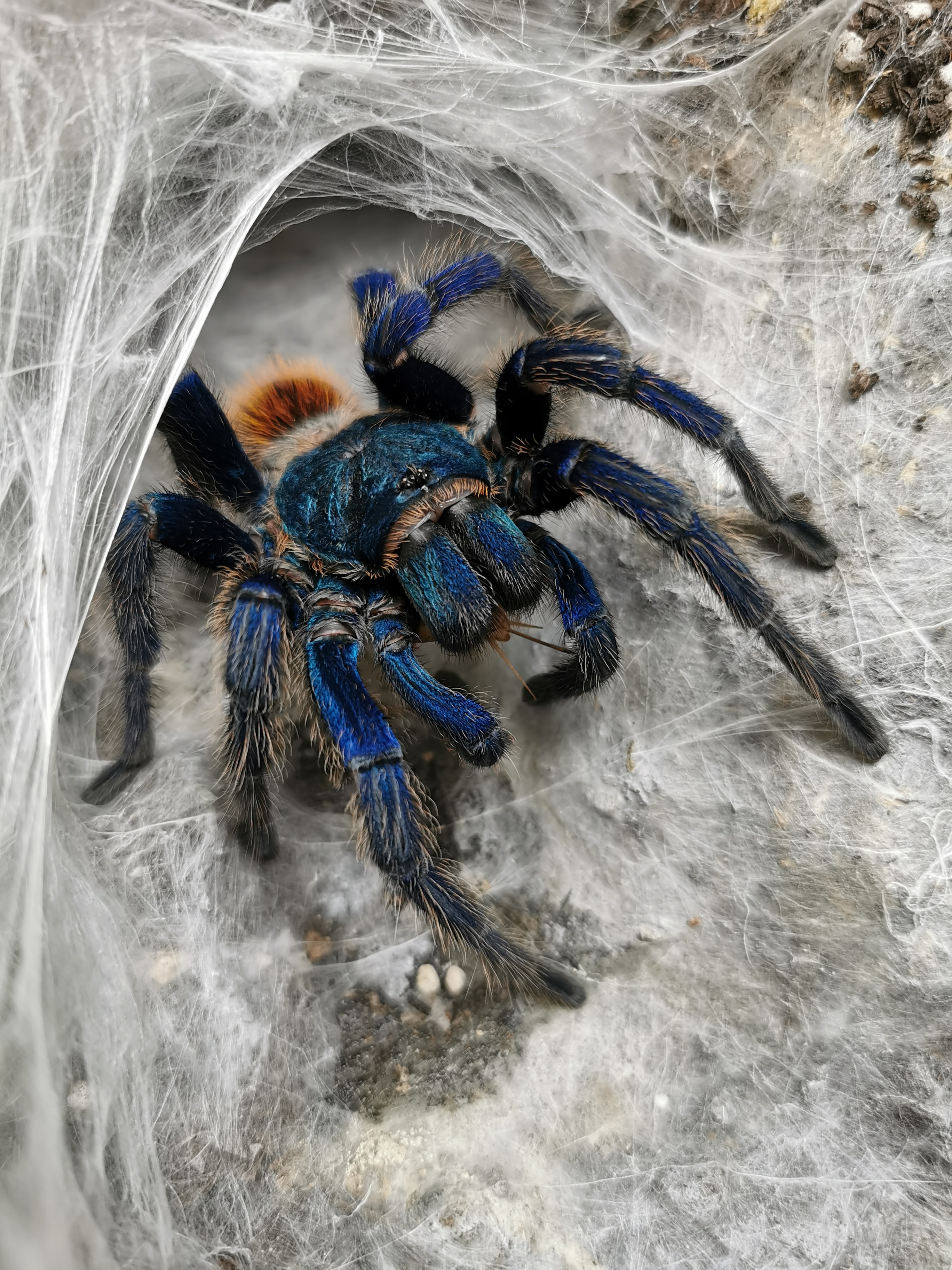Welcome to Tarantula Cove!
We are a group dedicated to raising awareness for the importance of tarantulas and the conservation of their habitats, safety, and future as an important part of our ecosystem.
While most people’s instincts are to be far away as possible from our eight-legged friends as possible, tarantulas are actually quite harmless to humans compared to some of their more dangerous relatives – such as the Brazilian Wandering Spider (commonly known as the Banana Spider) or Sydney Funnel Web spider who's bites can lead to serious medical implications or death – and are typically quite docile and shy in nature.
The Benefits of Tarantulas

While tarantulas might be considered among the scarier-looking members of nature, they come in a beautiful array of colors, shapes, and sizes. From stunning multi-colored variations like the Greenbottle Blue to the left and as some of the largest species of spiders, they play an incredibly important role in our ecosystems and provide countless benefits that we may take for granted.
Some of those benefits include population control of insects such as cockroaches, crickets, and beetles, and even larger species such as frogs and mice. Furthermore, tarantulas greatly prefer that you don't see them at all! Tarantulas are very shy in nature and would prefer to stay hidden in their burrow or corner away from humans, and would much rather run and hide than chase after you. While they and other spiders might give many of us a bit of a fright when we encounter them, they play an important role in keeping other insects who might not be so shy about being around humans in check. Additionally, they are an important food source for other creatures such as birds and reptiles that promote a balanced and healthy ecosystem
Outside of their ecosystem-related benefits, they have huge potential in medical research and science. Research being done on tarantula venom, much like snake venom, is showing promising potential to develop new methods and sources of powerful painkillers for chronic pain that would not have addictive tendencies and other adverse side effects from opiod painkillers, though it's not recommended to test that directly yourself!
Dangers to Tarantulas
As with many wildlife species, the largest threat to tarantulas is the destruction of their habitats through urbanization, deforestation, and climate change. Especially in the case of urbanization, when the habitats of tarantulas and humans often get pushed together, tarantulas and spiders as a whole are feared and seen as pests to be exterminated or wiped out. While it's okay to not want a tarantula or other large spider hanging around in your house unsupervised, it's important to not see them as an enemy in the outside environment.
Additionally, due to some species of tarantula's exotic colors and characteristics, endangered wild tarantulas also face threats from illegal poaching and smuggling from protected areas or their native countries without care for managing a healthy wild population. As with many rare species, there is a unique black market to supply exotic tarantulas that might be endangered or have fragile wild populations. If hobbyists are to purchase and own tarantulas, care should be taken to make sure tarantulas are bought from reputable breeders as to not support the sale of endangered or illegally acquired tarantulas.
We Hope that
By providing some education on the importance and beauty of tarantulas, our organization can change the public’s perception of tarantulas from fear or dislike to seeing them as a valued member of nature and to treat them as our friends to be cared for and respected.
To learn more about what makes tarantulas so unique, we strongly encourage you to check out our informative page on tarantulas here!
